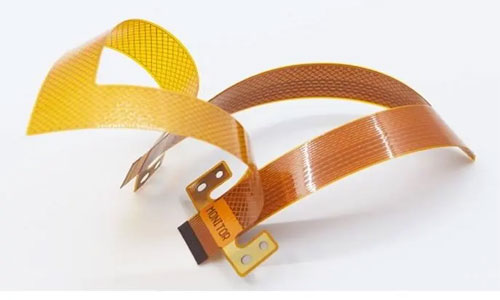In recent years, the demand for flexible printed circuits (FPC) has surged due to their integral role in various electronic applications, including in the production of lithium-ion batteries. To meet this demand and ensure high-quality FPC, manufacturers are turning to advanced production technologies such as rotary die cutting solutions. These innovative solutions have revolutionized FPC manufacturing, offering enhanced precision, efficiency, and flexibility.
Rotary die cutting solutions have emerged as a game-changer in FPC production, providing manufacturers with a highly precise and efficient method for shaping and cutting intricate patterns on flexible materials. In the context of lithium battery manufacturing, the significance of these advancements cannot be overstated, as FPC plays a crucial role in the interconnection and performance of battery cells, as well as in accommodating the unique spatial constraints of battery packs.
Key advancements in FPC production technology facilitated by rotary die cutting solutions include:
1. Precision Engineering: Through the use of high-precision rotary tooling, die cutting machines can achieve micron-level accuracy in cutting and shaping FPC. This exceptional precision ensures that the final components meet exact specifications, thereby enhancing the overall performance and reliability of the FPC in lithium batteries.
2. Enhanced Efficiency: Traditional methods of FPC production often involve labor-intensive manual processes or slower, less precise cutting technologies. Rotary die cutting solutions streamline the production process, significantly reducing production time while minimizing material waste, ultimately improving overall efficiency and cost-effectiveness.
3. Tailored Customization: The flexibility offered by rotary die cutting solutions enables manufacturers to create intricate, custom designs for FPC, tailored to the specific requirements of different battery pack configurations. This flexibility is critical in accommodating the diverse needs of various lithium battery applications.
4. Quality Assurance: The integration of rotary die cutting solutions ensures consistent quality in FPC production, reducing the likelihood of defects and ensuring that each component meets stringent quality standards. This is particularly critical in high-performance lithium battery applications where reliability and safety are paramount.
In conclusion, the adoption of rotary die cutting solutions represents a significant leap forward in FPC production technology. These solutions not only enhance the efficiency and precision of FPC fabrication but also contribute to the overall performance, reliability, and safety of lithium battery systems, thus supporting the continued growth and adoption of electronic devices, electric vehicles, and renewable energy solutions.
As the demand for FPC and lithium batteries continues to grow, the role of rotary die cutting solutions in advancing FPC production technology is poised to remain pivotal, driving innovation and ensuring a consistent supply of high-quality, reliable electronic components to meet the evolving needs of the market.

Printed Circuit Board (PCB) is a critical electronic interconnection component of electronic products, which connects various electronic components through circuits and plays a role in conduction and transmission. According to flexibility, PCB can be divided into rigid PCB, flexible PCB (FPC), and rigid-flex PCB.
FPC (Flexible Printed Circuit) is a flexible printed circuit board, which is made by laminating a flexible copper-clad laminate (FCCL) and a flexible insulation layer with an adhesive (glue).
Compared with traditional hard PCB, FPC has significant advantages in high production efficiency, high wiring density, light weight, thin thickness, foldability, bending, and three-dimensional wiring. It is more in line with the trend of intelligent, portable, and lightweight downstream electronic industry and suitable for electronic products with requirements of miniaturization, lightweight, and mobility.
According to Prismark data, from 2021 to 2026, the global FPC market size will increase from 14.1 billion US dollars to 17.2 billion US dollars, with a CAGR of 4.1%.
FPC Industry Chain Analysis
The direct upstream of the FPC industry chain is FCCL, and the downstream is terminal consumer electronic products. Globally, Japanese enterprises occupy an absolute dominant position in the upstream of the industry chain, and the short-term pattern will not change. Downstream products of the industry chain show an increasingly diversified development trend.
Data shows that the major raw materials of the FPC industry chain upstream include FCCL, cover film, electronic components, shielding film, adhesive paper, steel plate, electroplating additives, and dry film.
【1】FCCL
All processing processes of FPC are completed on FCCL. FCCL is the key substrate for producing FPC, and its cost accounts for 40%-50%. FCCL is mainly composed of rolled copper foil, polyimide (PI) film or polyester (PET) film substrate film, and adhesive. The substrate PI film is its core raw material.
Global FCCL production capacity is mainly concentrated in Japan, mainland China, Korea, and Taiwan, China. With the continuous release of domestic FCCL production capacity, mainland China FPC companies are gradually realizing domestic substitution in upstream raw materials for FPC.
【2】Polyimide
Polyimide (PI), containing imide groups in aromatic heterocyclics, is one of the best high-temperature resistant polymer materials in engineering plastics so far. Domestic PI films are mainly used for ordinary electrical-grade films and electronic product cover films, reinforcement films, etc. High-end PI paste and PI films are basically monopolized by foreign countries.
Domestic enterprises mainly include Damay Technology and Dasheng Technology in Taiwan, China, and Ruifutai, Era New Material, Danbang Technology, and Dinglong Shares (PI paste) in mainland China. American Dupont, Japanese Chiyoda Chemical, Japanese Toray, Ube Industries, and Korean SKC, these five American, Japanese, and Korean companies occupy 64% of the PI market share, forming a foreign oligopoly.
Midstream: FPC manufacturing
FPC is a fully competitive industry worldwide, with the concentration of the competitive landscape. The total market share of the top four companies accounts for nearly 70%. Japans Fukukawa and Pengding Holdings are the top two FPC suppliers in the world, and their share is significantly higher than other manufacturers.
Currently, leading global enterprises in FPC product manufacturing process have achieved a line width and line spacing of up to 30-40μm and aperture of up to 40-50μm. They further develop toward a line width and line spacing below 15μm and an aperture below 40μm.
Domestic leading enterprises in FPC product manufacturing process have also broken through the technology with a line width and line spacing of 40-50μm and an aperture of 70-80μm. They further break through the process capability of line width and line spacing below 40μm and aperture below 60μm. Representative local FPC manufacturers include Pengding Holdings, Dongshan Precision, Hongxin Electronics, Chuanyi Technology, Shangda Electronics, and Jingwang Electronics.
In recent years, Japanese enterprises, such as Fukukawa Technology, have begun to turn to the high-profit automotive market, and Sumitomo Electric and Fujikura have begun to shrink their supply to A customers. Pengding Holdings and Dongshan Precision have invested heavily in automation production lines, and their share has continued to grow. Taiwan enterprises are relatively stable.
In the global PCB output distribution in 2021, Taiwan, China ranks first with a share of 32.8%, mainland China's share has risen to 31.3%, ranking second, and Japan's output share has dropped to 17.2%, a decrease of over 50%.
In recent years, overseas PCB manufacturers represented by Japanese companies have weaker expansion intentions and are gradually withdrawing. Mainland China actively undertakes industrial transfer, and PCB output and its proportion in the global market are rapidly increasing. There are still vast replacement spaces for domestic FPC in the future.
Downstream: terminal applications
The downstream of the FPC industry chain includes various applications, including display/touch module, fingerprint recognition module, camera module, etc. The final applications include consumer electronics, communication equipment, automotive electronics, industrial control medical, aerospace, and other fields.
From the downstream perspective, the innovation of smartphone functions and the compression of internal space by large-capacity batteries have increased the FPC unit usage; the high-growth wearable devices have increased FPC usage; AR/VR has rapidly grown and opened up new application scenarios for flexible boards; The electrification and intelligence of automobiles have greatly increased the value of FPC units. Among them, the trend of FPC replacing copper wire harness in power batteries is clear, which has increased the value of FPC units by about 600 yuan.
With the accelerated replacement of downstream terminal products and the increasing concentration of their brands, leading FPC manufacturers have consolidated their advantages in technology and scale through building high industry barriers, further improving the industry market concentration.
With the further improvement of the supporting FPC industry chain, the stable improvement of technical level, and the continuous expansion of production capacity, domestic FPC companies have the ability to meet the demand of FPC in new energy vehicles and emerging consumer electronics products. The competitiveness of domestic FPC enterprises will continue to increase, and its market share will increase accordingly.
Contact: Pamela
Phone: +86 189 6365 3253
E-mail: info@industryprocess.com
Whatsapp:+86 189 6365 3253
Add: Yajing Industrial Park, No. 59 Shuangjing Street, Weiting Town, Suzhou Industrial Park
We chat
